Trail Of Tears National Historic Trail
Remember and commemorate the survival of the Cherokee people, forcefully removed from their homelands in Georgia, Alabama, and Tennessee to live in Indian Territory, now Oklahoma. They traveled by foot, horse, wagon, or steamboat in 1838-1839.
You can visit many of the sites along the Trail of Tears National Historic Trail over the 2,200+ mile route that crosses 9 states.
- Arts and Culture
- Craft Demonstrations
- Auto and ATV
- Scenic Driving
- Guided Tours
- Self-Guided Tours - Auto
- Museum Exhibits
- Architecture and Building
- Archeology
- Arts
- Photography
- Burial, Cemetery and Gravesite
- Farming and Agriculture
- Plantations
- Forts
- Native American Heritage
- Schools and Education
- Transportation
- Roads, Routes and Highways
- Trains and Railroads
- Tragic Events
- Forced Marches
- Wars and Conflicts
- Tribal Conflicts
- Trails
Chieftain's Museum, Rome, Georgia
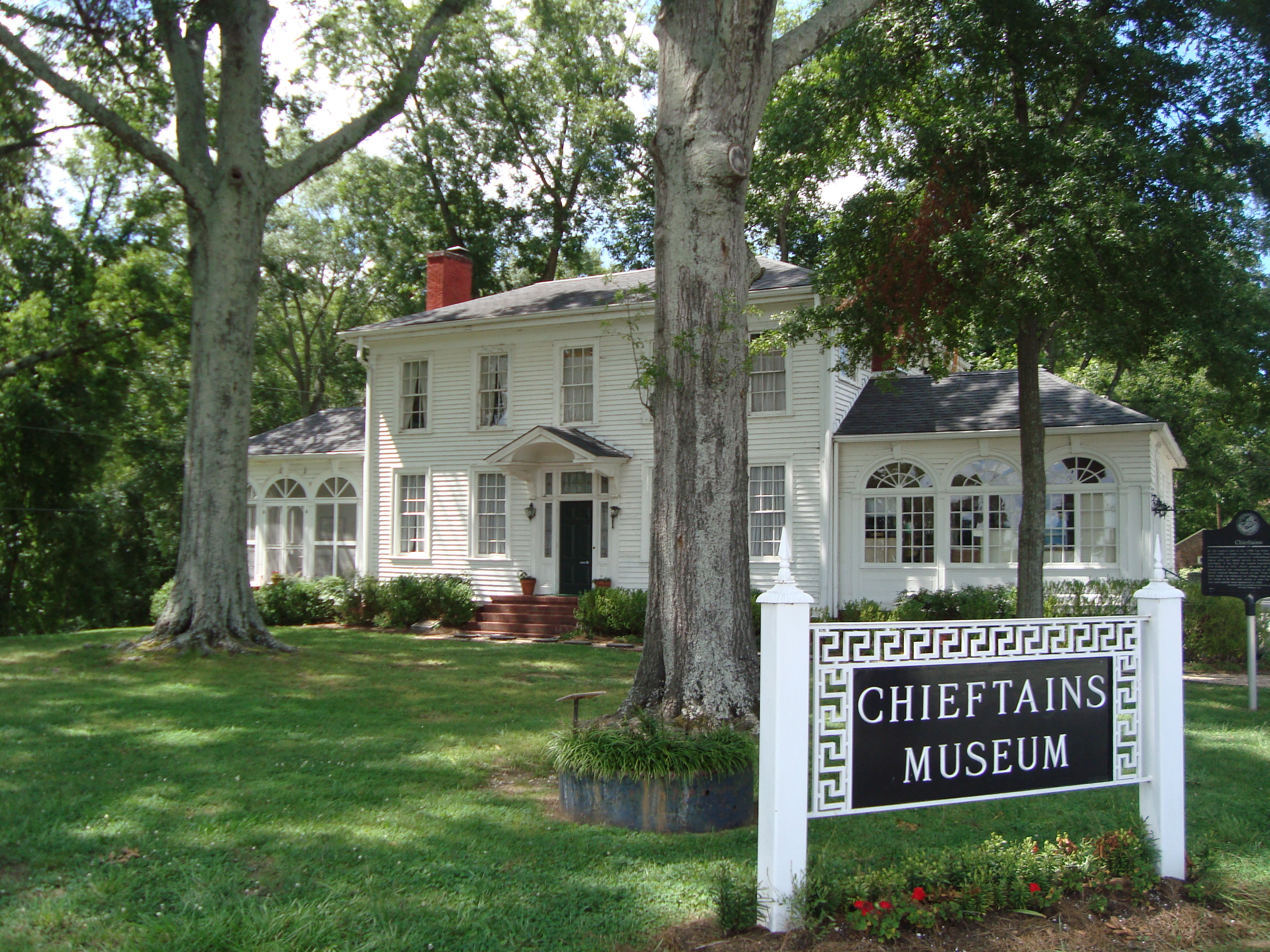
The museum tells the story of Major Ridge, the influential Ridge family including prominent son John Ridge, Cherokee history, and the Trail of Tears, as well as subsequent history of the home and region.
Brown's Ferry Tavern, Chattanooga, Tennessee
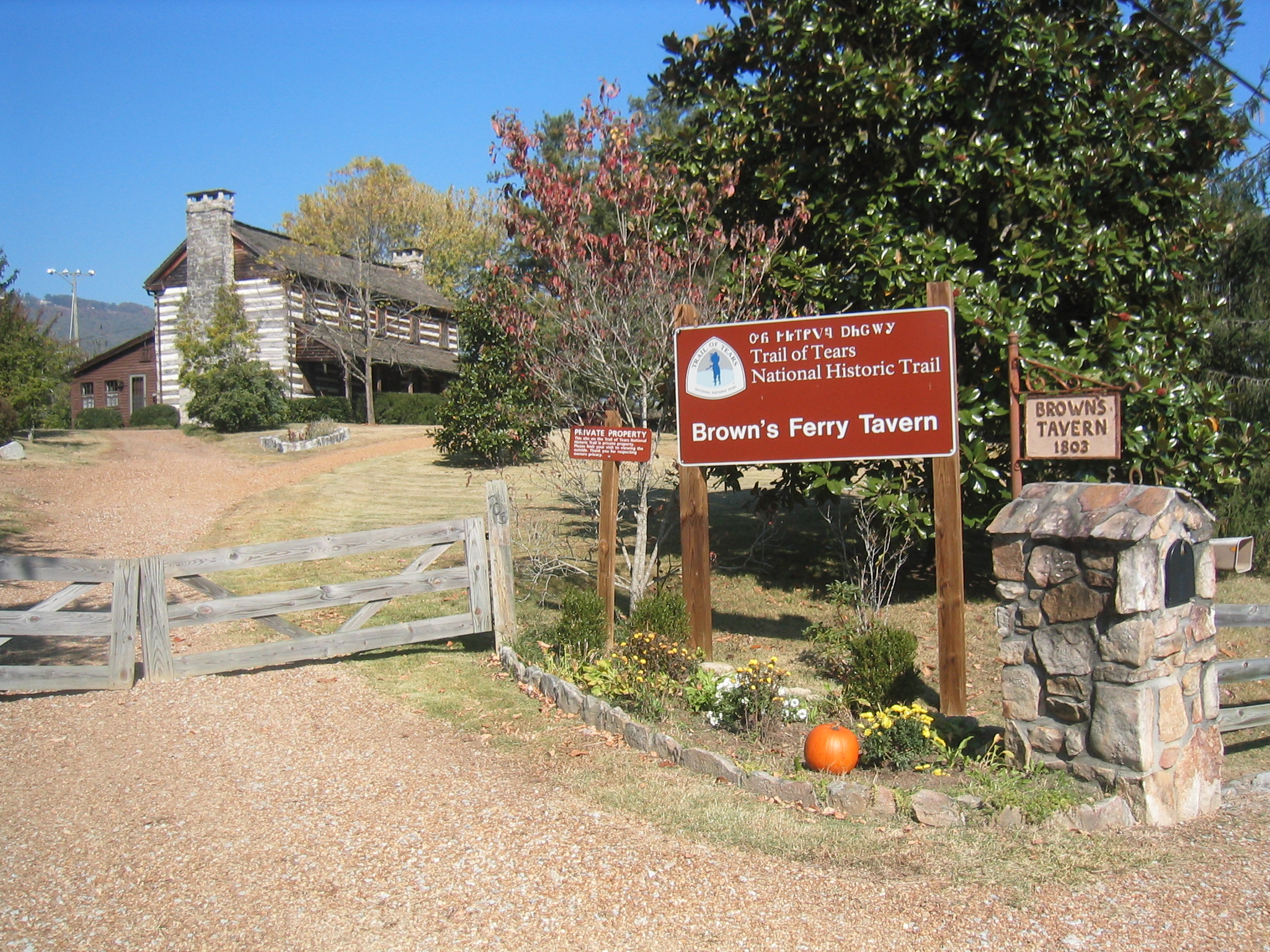
Cherokee leader John Brown, who owned 640 acres in this area, ordered the construction of Browns Ferry Tavern in 1803. In 1838, the road running past this structure was the route by which several Cherokee detachments were removed to present-day Oklahoma.
Mantle Rock Preserve, Joy, Kentucky
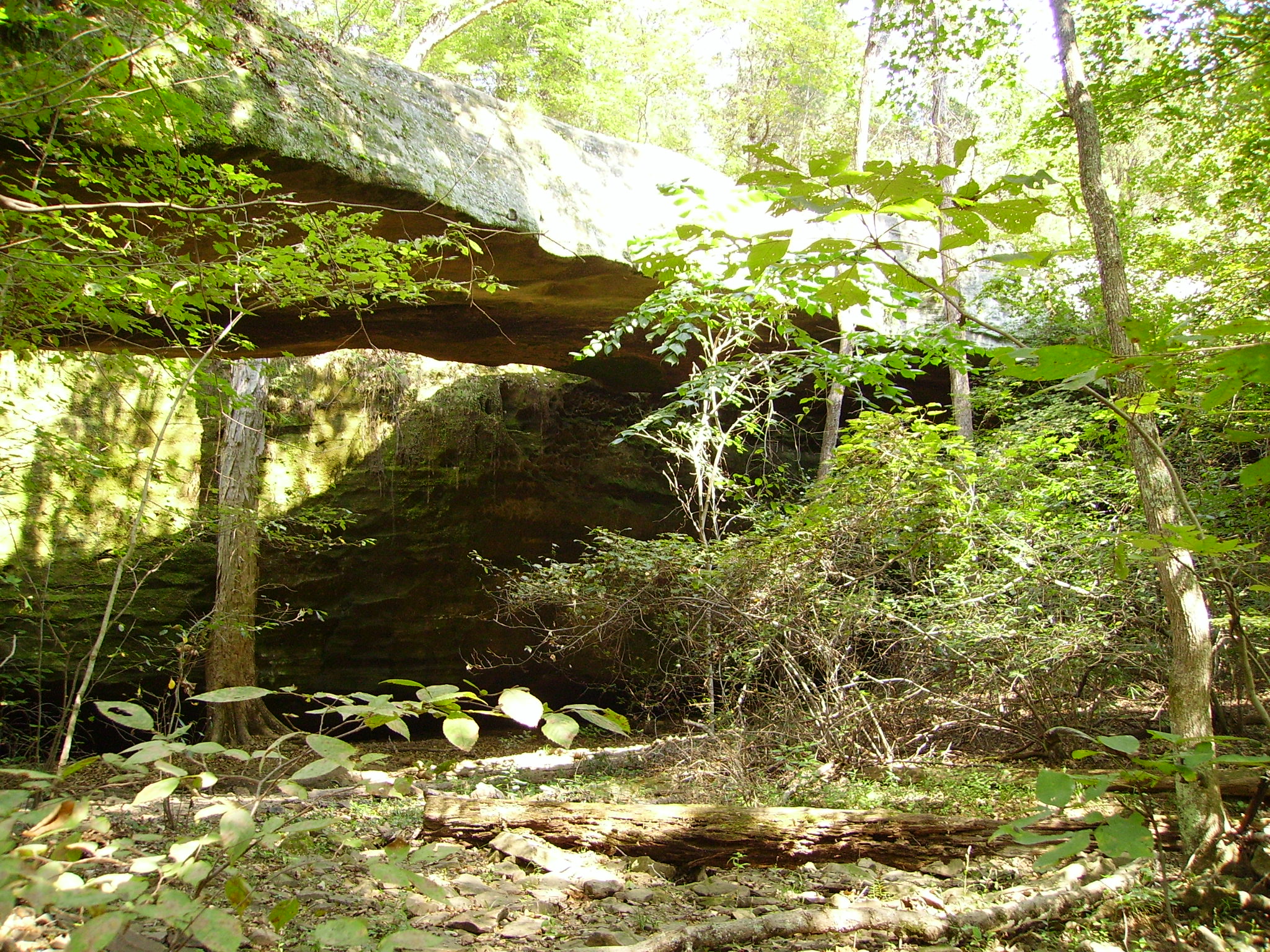
Thousands of Cherokee camped for weeks along the main (northern) route, near Mantle Rock, during the winter of 1838-39 as they waited for ice conditions in the Ohio River to allow a safe crossing.
Cherokee Retracement at Pea Ridge National Military Park, Garfield, Arkansas
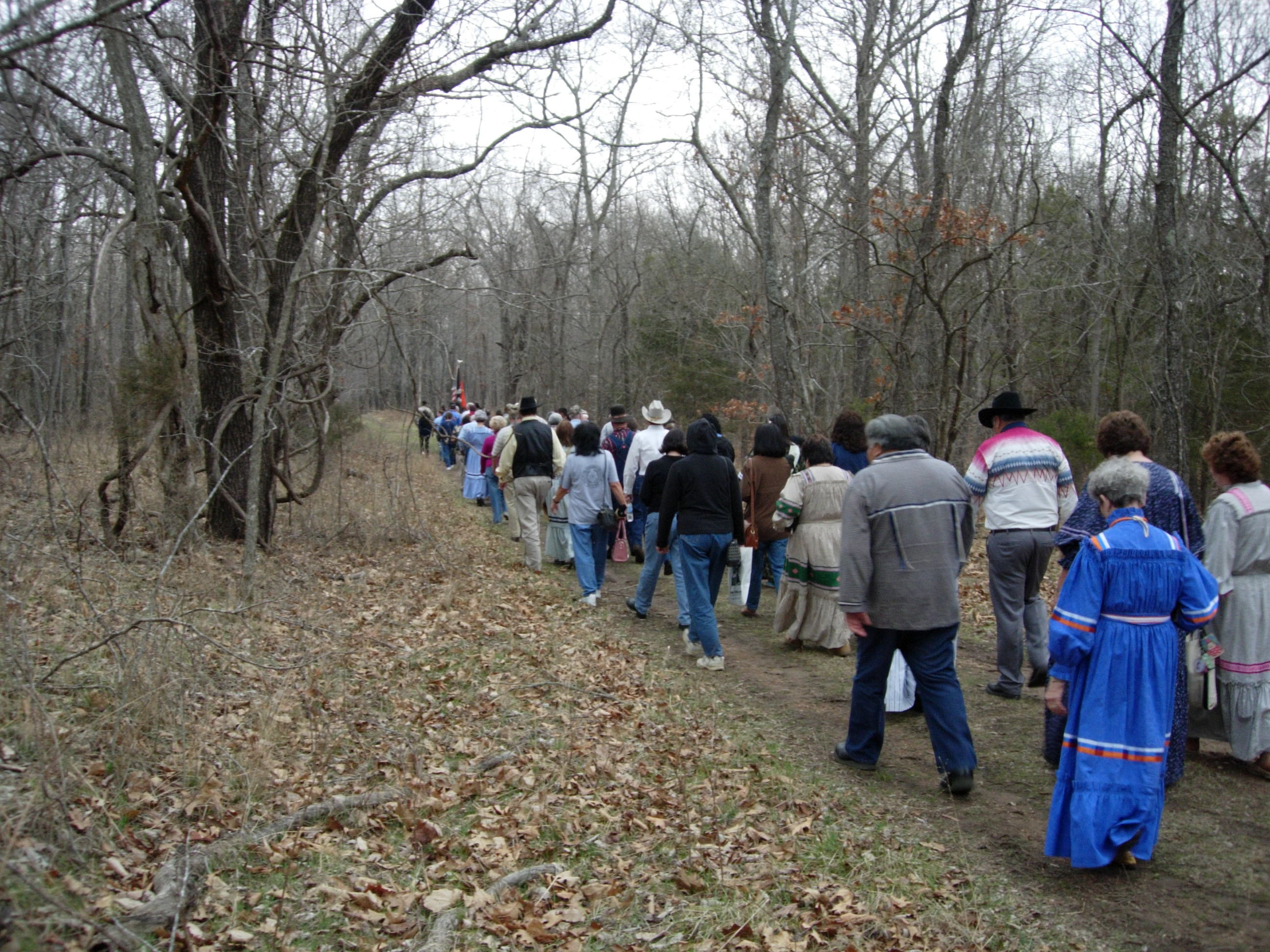
The Pea Ridge National Military Park encompasses 4,300 acres and features a visitor center, museum, self-guided tours, reconstructed Elkhorn Tavern, and a retracement trail along a 2.5-mile original route segment of the Trail of Tears.
Grave Stone of William Adair, Stilwell, Oklahoma
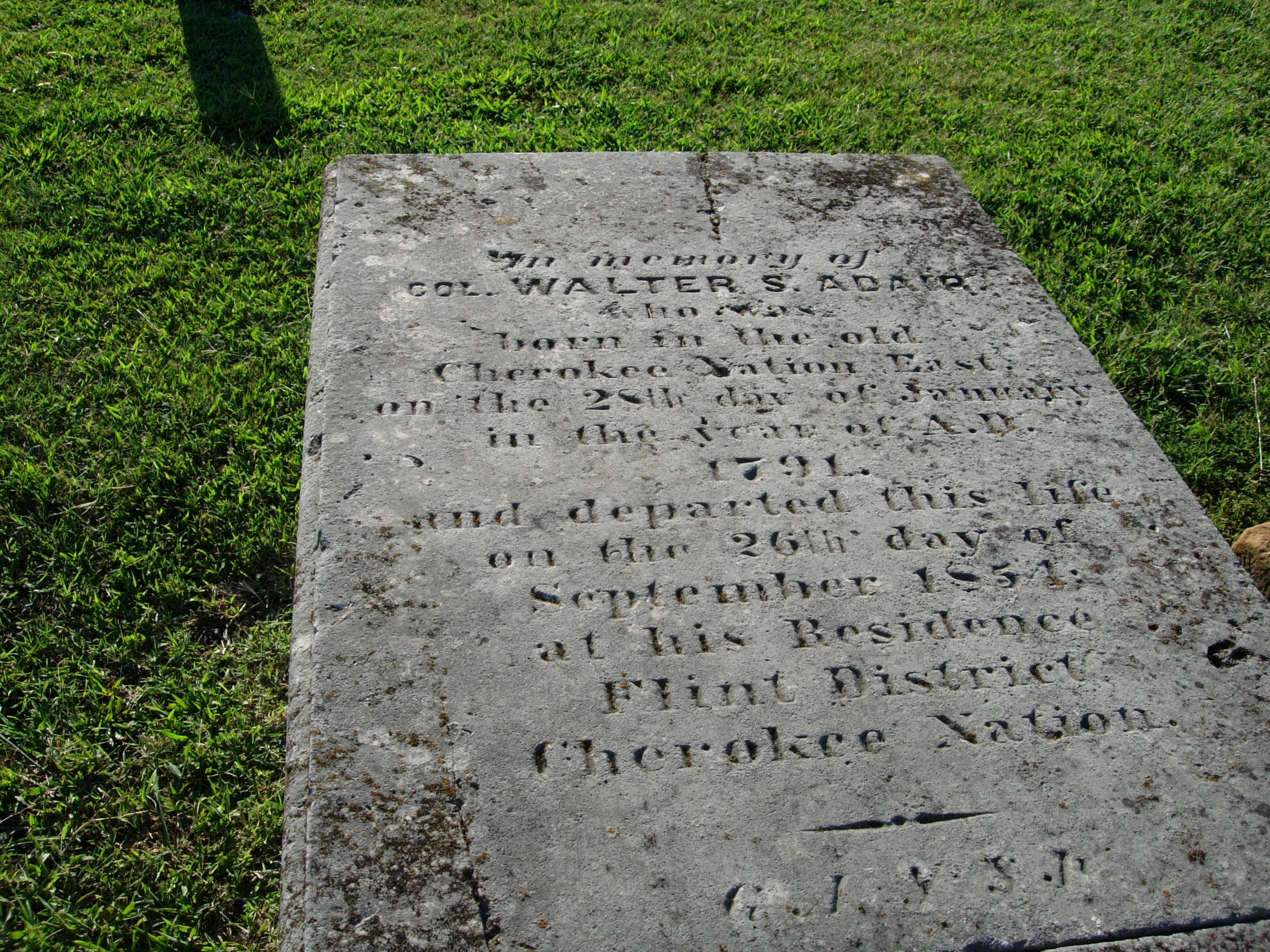
When the Cherokee arrived at their prescribed disbandment depot in Oklahoma, settlements sprang up nearby. There was a depot at the Adair's farm near present-day Stilwell, Oklahoma.
Crabb Abbott Farm, Grantsburg, Illinois
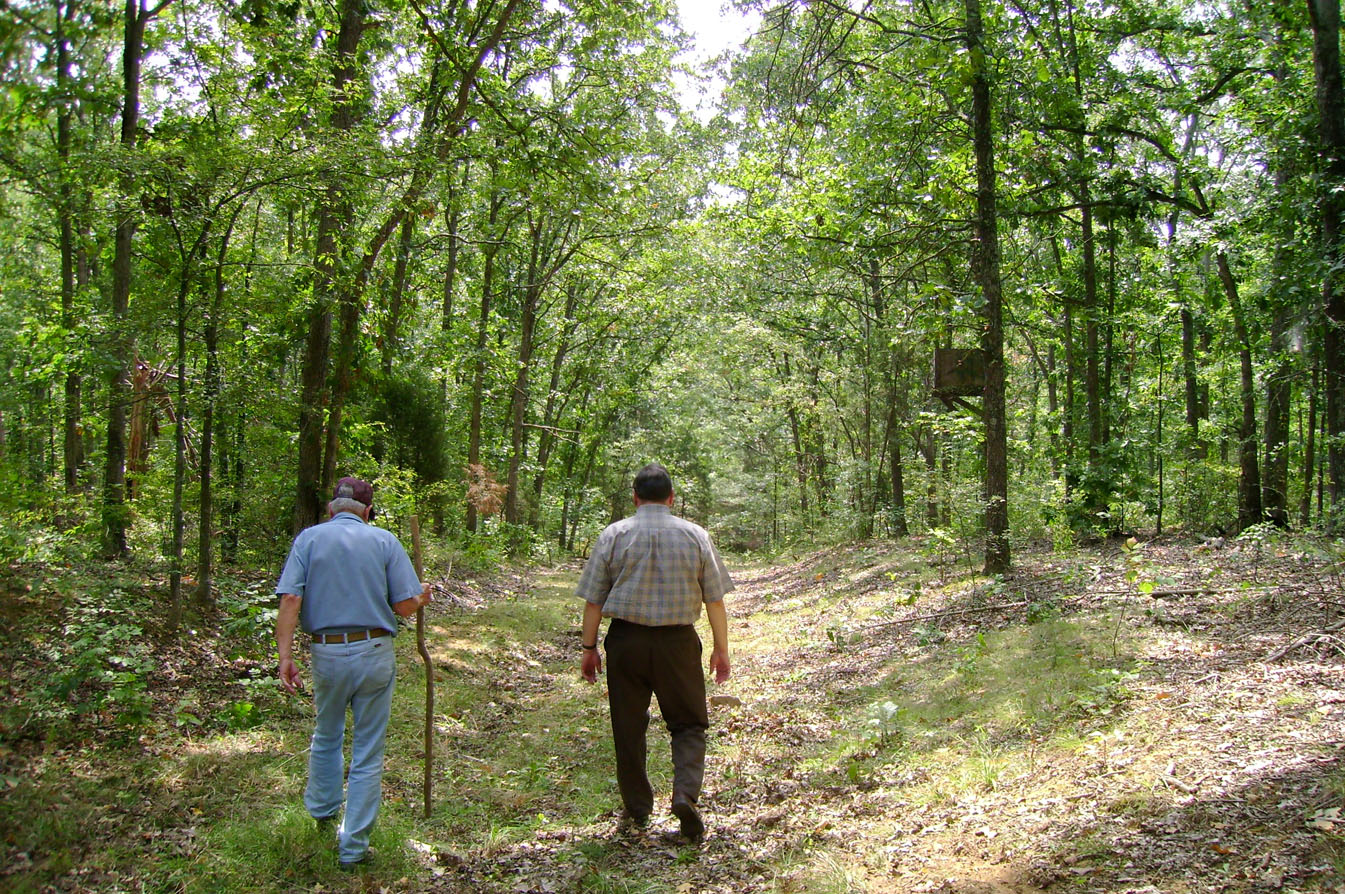
Crabb Abbott Farm has segments of the Northern Route, including the rock crossing and ford of Sugar Creek. These segments are contiguous with trail segments on the adjacent Shawnee National Forest.